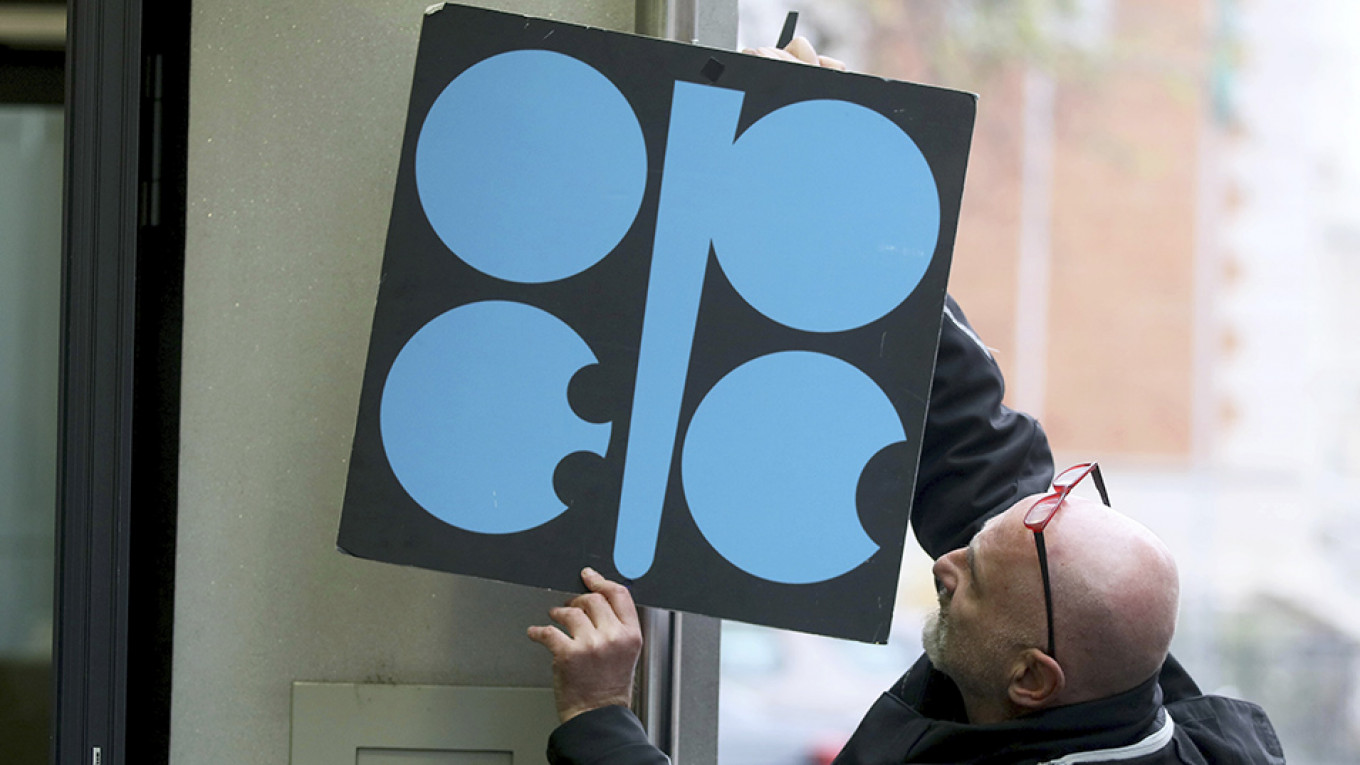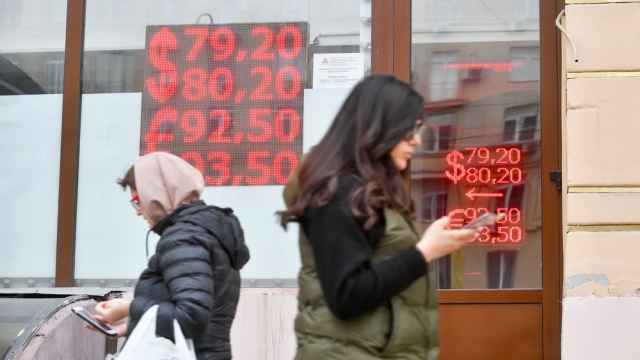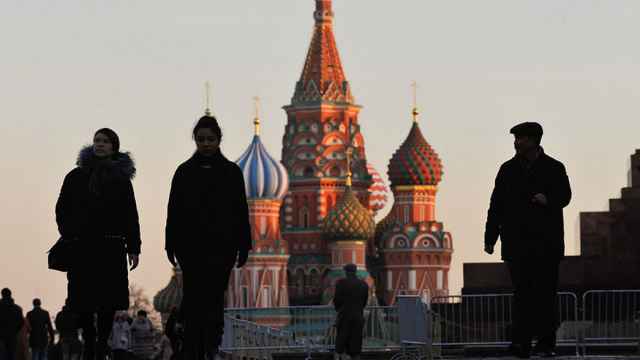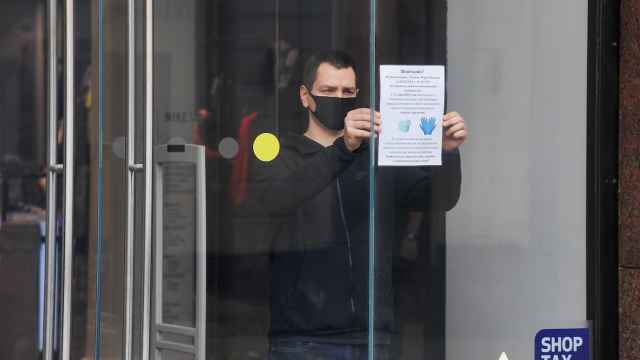Has OPEC reached the point where the benefit of bringing in outsiders to achieve its goals is outweighed by the difficulty of managing the expanded group? It certainly seems so.
Six months ago, the group couldn’t reach a deal on production levels without help from Russia. Now it can’t even agree on the date of a meeting, and Russia seems to be the problem. So much for any hope members might have of putting a floor under oil prices.
The rot really became evident in December. A deal to extend a policy of output restraint was reached only after Russian oil minister Alexander Novak took over an office at the heart of OPEC’s headquarters in Vienna and brokered a compromise that both Iran and Saudi Arabia would accept.
Russia had taken the reins of a group that it didn’t even belong to because it had become too dysfunctional to run itself. Saudi Arabia and Iran were at loggerheads over production policy – not for the first time – as well as how the group should respond to the reimposition of U.S. sanctions on Tehran.
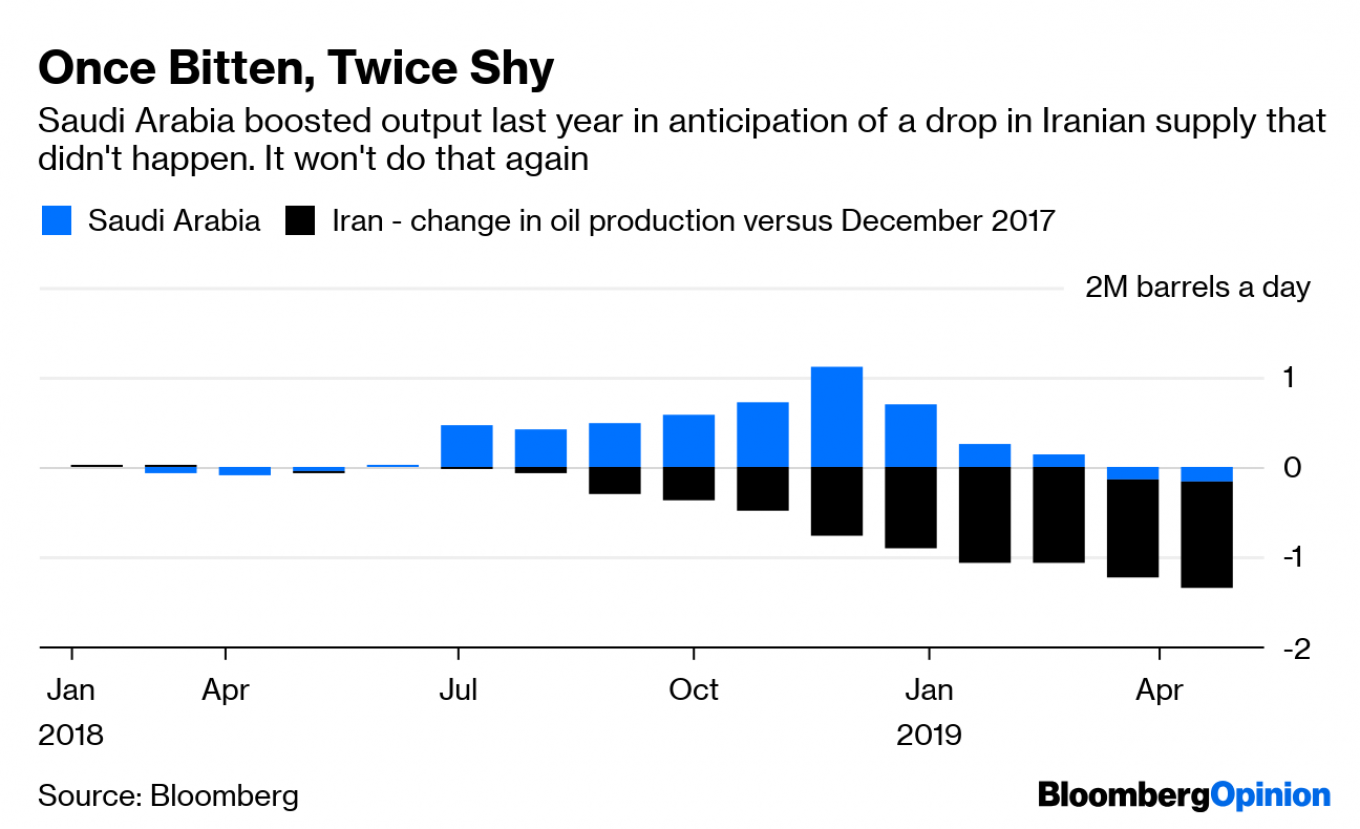
But if the group turned in a poor performance at the end of 2018, its current chaos looks pitiful.
Having agreed to meet in April to review the current production deal, seemingly at the insistence of Russia, the group cancelled that gathering just a month before it was due to take place. That decision may also have been initiated by Russia – Novak said at the time that it made sense for OPEC and its friends to discuss any potential extension of output cuts in May or June.
The regular half-yearly OPEC meeting is now scheduled for June 25, with a gathering of the bigger OPEC+ group the following day. That’s a bit late to discuss the future of a deal that’s due to expire four days later, as it will take at least a month to implement any changes.
But now even that has been thrown into doubt.
Two weeks ago, most OPEC+ ministers met in Jeddah, Saudi Arabia to assess the output deal and make recommendations for the June meeting. But things didn’t quite go according to plan. Novak, who signed up to the original schedule, seems to have a more pressing commitment and wants the date changed.
One suggestion is to hold the OPEC+ gathering on July 4. Another is for the weekend of June 22-23. Neither is popular.
Several of the group’s members have already pushed back against a change. Arrangements have already been made, diaries set, flights and hotel suites booked. There is still no decision on when to hold the meetings and public holidays across the Muslim world this week will probably delay one even further.
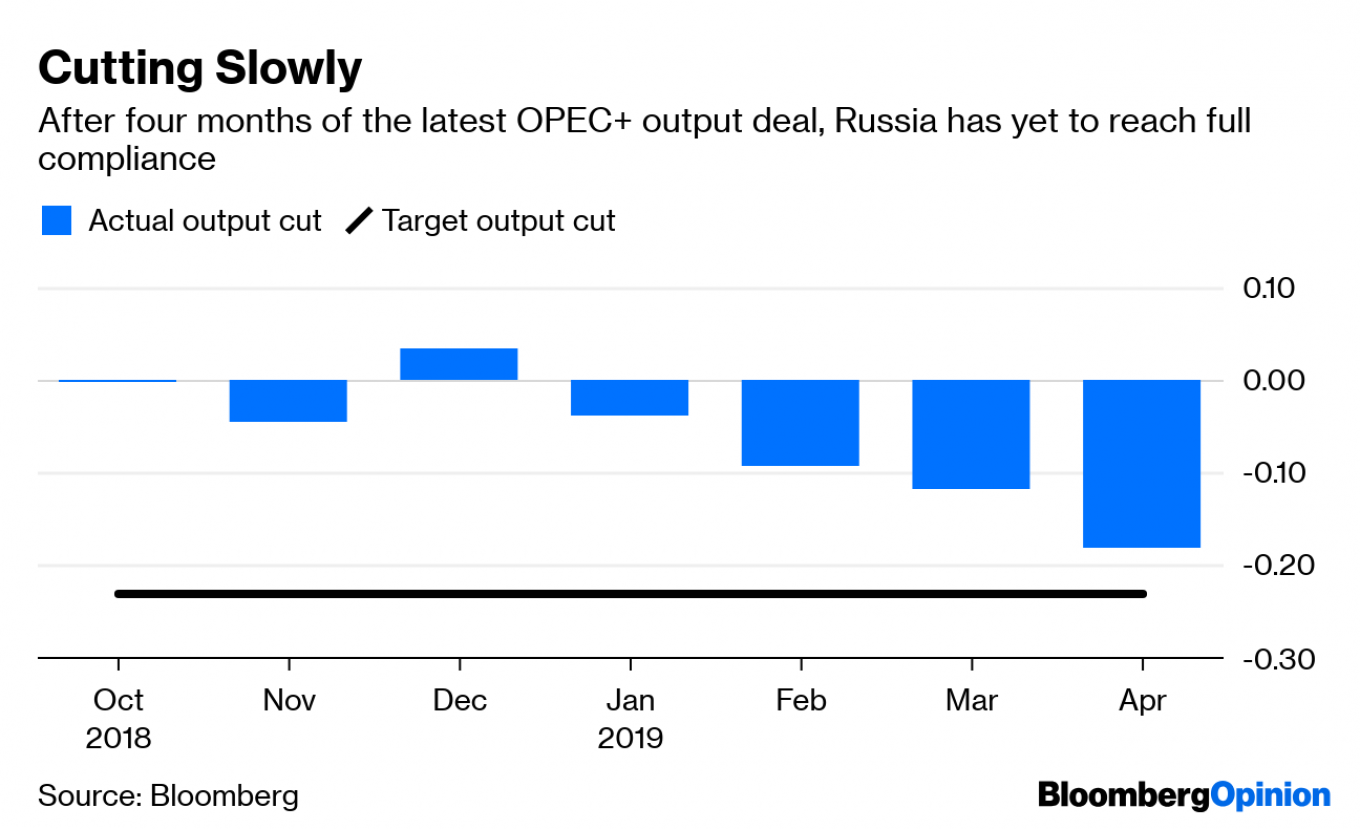
And then there is the nagging sense that Russia is starting to control OPEC just a little too much.
Its level of influence over the group is out of all proportion to its participation in the collective output cuts. Four months into the current deal, Russia’s compliance was still only around 80%, compared with 150% for the whole of OPEC. It really isn’t pulling its weight. It is still only the OPEC countries that are making the sacrifices to try to prop up oil prices.
And they are being hampered by a lengthening list of U.S. import tariffs that is beginning to have a chilling effect on economic growth forecasts. Crude prices fell about 7% in two days last week, after data showed U.S. stockpiles barely fell the previous week and President Donald Trump announced tariffs on all imports from Mexico.
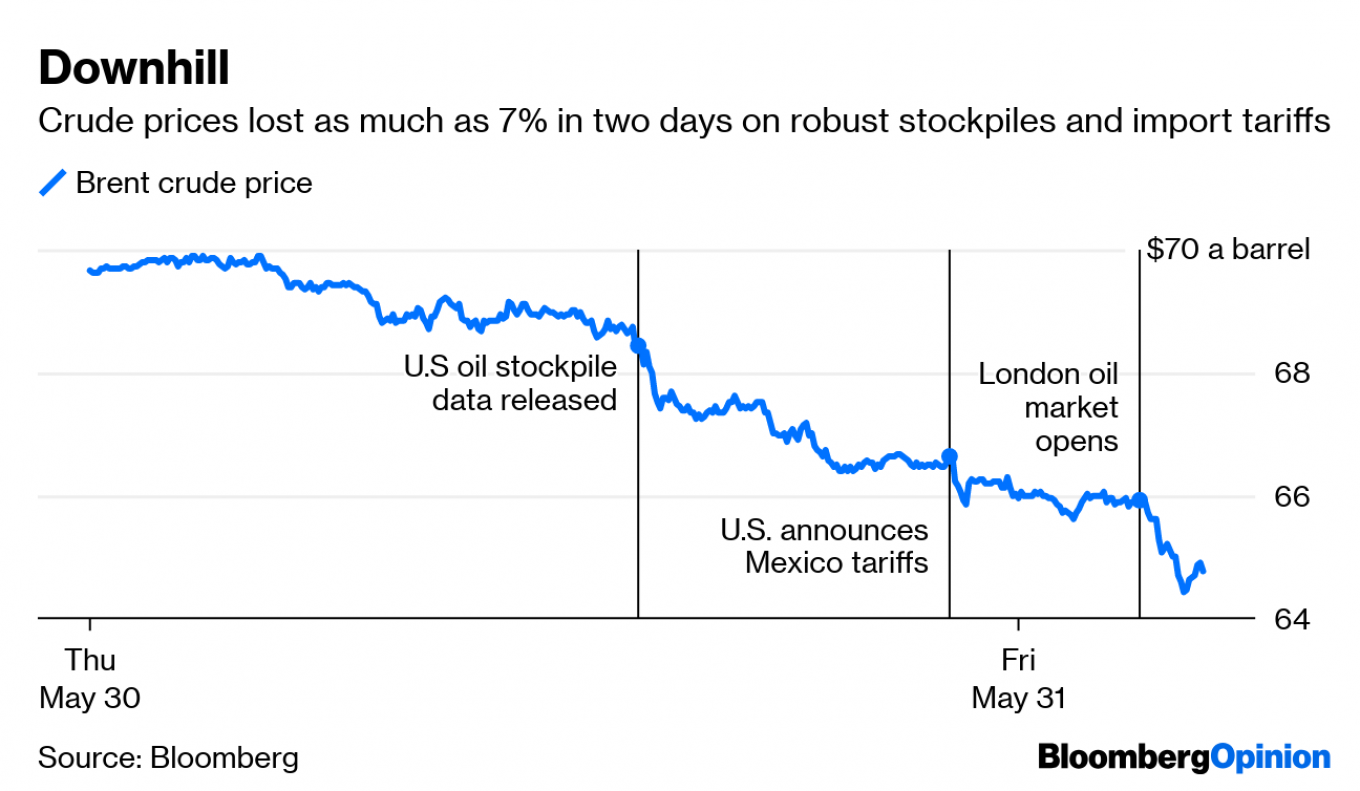
Russia’s commitment to output cuts has always seemed shaky, particularly since prices have recovered from the 2016 lows that triggered this whole OPEC+ process. Saudi Arabia clearly values the partnership with Russia, although it may be losing its shine – negotiations between Saudi Aramco and Russia’s Novatek PJSC to jointly develop liquefied natural gas in the Arctic are currently on hold.
Most of the non-OPEC contribution to the production cuts are from natural decline that will happen anyway. The group may be better served by cutting the ties now and getting on with the job on its own.
The group needs to show competence and unity of purpose if it really wants to put a lower limit on oil prices. Right now it seems they would struggle to organize a bun-fight in a bakery, even if they could decide when to hold it.
This article was originally posted by Bloomberg.
A Message from The Moscow Times:
Dear readers,
We are facing unprecedented challenges. Russia's Prosecutor General's Office has designated The Moscow Times as an "undesirable" organization, criminalizing our work and putting our staff at risk of prosecution. This follows our earlier unjust labeling as a "foreign agent."
These actions are direct attempts to silence independent journalism in Russia. The authorities claim our work "discredits the decisions of the Russian leadership." We see things differently: we strive to provide accurate, unbiased reporting on Russia.
We, the journalists of The Moscow Times, refuse to be silenced. But to continue our work, we need your help.
Your support, no matter how small, makes a world of difference. If you can, please support us monthly starting from just $2. It's quick to set up, and every contribution makes a significant impact.
By supporting The Moscow Times, you're defending open, independent journalism in the face of repression. Thank you for standing with us.
Remind me later.



